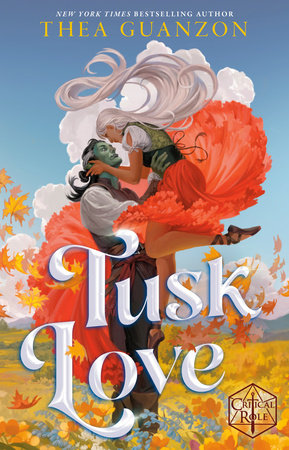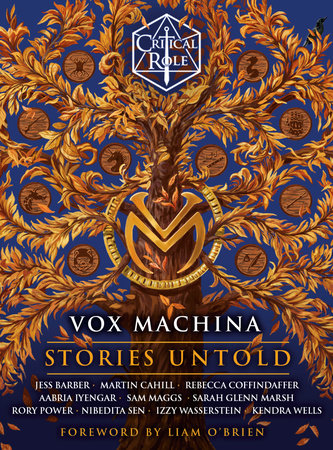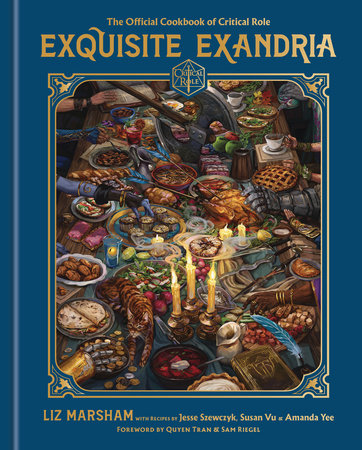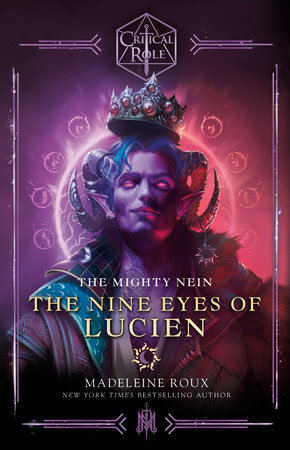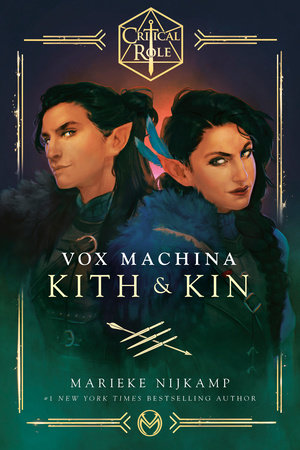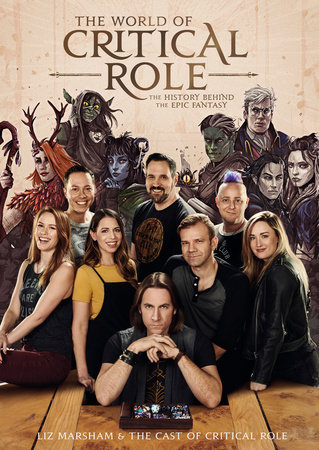Excerpt
Critical Role: Bells Hells--What Doesn't Break
Chapter 1It woke not in pain, per se, but in considerable discomfort, as its body weight was supported entirely by a noose around its throat. This was its first revelation. The next was that it was suspended by said noose from the boughs of a colossal tree. The third, and perhaps the most important, epiphany was that it was surrounded by corpses, some fresher than others. Something about the sight of those bodies, bluish-purple skin tinted green in the last light of a dying day, brought it tremendous solace.
No, it thought to itself, even as it processed the fact that it was a thinking entity, capable of rationalization, even something as dangerous as imagination. It wasn’t the dangling cadavers that comforted it but the knowledge that something—it wasn’t entirely sure what exactly—was missing from that rotting tableau. That was why she—
She?
That sounded correct. She seemed an accurate summation of that aspect of her identity, but of course that impression could be revised later. It—she had only just arrived upon the knowledge that gender was even an applicable variable, after all. More discoveries surely awaited.
Like her name.
Surely, she had a name once. Just as surely as the continued knowledge of it was waiting for her in the derelict and still-unexplored corners of her mind, of which she suspected there were many. An entire warren of memories to excavate until she could recover her essence, whatever it was that once made her singularly her, from the lightless nothing. Right now, she wasn’t so much a person as an agglomeration of parts: bones, sluggishly circulating fluids, fractured cartilage, a mouth and its bitten tongue, a neck bruised to numbness, ears that ached in time with her lethargic heartbeat but only along their very tips.
These were all indispensable constituents of a physical body, but without the context of answers to very specific questions, they were just cold meat and puddling humors. As her awareness of the noose grew further pronounced, she decided what she really wanted was someone to tell her why she’d been hung—
She began to weep. This surprised her. Though she couldn’t articulate a reason for this, a part of her, some dim and remote hemisphere of her revivifying brain not yet on speaking terms with language, had expected something more primordial than the brokenhearted sobs wracking her: a scream, yes, that word seemed right, something louder, something like loss made into sound, like waking up and understanding everything you’d ever loved was gone with no hope of restoration.
She hated the rope then. She hated it for its inadequacy. Had it been better made, thicker, thinner, tied differently, she’d be dead of a broken neck and safe from this grief convulsing through her. If it had done its goddamned job, she would be with her parents. She would—
Oh, she thought, the word parents as illuminating as it was incendiary, a flame set to oil-drenched skin. The amniotic fugue sloughed away, and suddenly she remembered everything.
Every detail. Every exquisite spill of shadow along the panes of her mother’s body, contorted as it was, hunched into itself in a pointless attempt at self-preservation. Every slick of light along the naked bones of her father’s face, lending them a sacramental quality: He looked like a relic, the only thing holy in that room of nightmares. Delilah’s face. Delilah’s laughter as she brought her back just for the delight of seeing her die again on the noose. She screamed then, a shrill and desperate keening that brought no catharsis—not with the noose still there, squeezing—but it was loud enough at least to frighten her memories back into repression and to take her attention from the bite of the rope. As both air and memory fled, her consciousness tumbled away again, the dark rushing up to grasp her like a mother’s arms.
*
There was a bird on her head.
Specifically, it was a grackle, iridescent-throated, its plumage almost black when it turned its head one way and a glossy patinated bronze when it turned its head the other. It was staring upside down from its perch on her skull, several strands of her hair clutched in its beak, its expression peculiarly aggrieved, as if it had been interrupted during a vital errand and was now forced to waste time it never had.
She studied it with some embarrassment. It occurred to her that the grackle might have thought of her as a rich trove of material and meat, a once-in-a-lifetime surfeit of everything its instincts ever coveted. Up until the point at which she had the audacity to wake up and stare at the bird, bleary-eyed, impudently un-dead.
Or undead, as the case was.
Her thoughts were a gray slurry not unlike filthy bathwater. Through the murk, she could see the vague silhouette of her memories, occulted for the moment, but theoretically accessible. Theoretically because for some ineffable reason, even the thought of exploring those recollections made her want to die as many times as was necessary to escape them permanently. Regardless, she was sure of one thing: She was neither all the way dead nor anywhere approaching respectably alive. (A small part of her wondered then if she could spare the grackle the feast of an eyeball, but she laid such musings down immediately after a sudden panic burbled up in her. Whoever she was before, she’d been a person subjected to repeated, unwanted sacrifice.)
But how had she become undead—
No, no, no. She tamped down her curiosity, the initial panic beginning to metastasize into a phobic reaction. Whatever had happened before, whatever had killed her, that needed to live elsewhere, preferably six feet under her immediate awareness.
The grackle saved her from further philosophizing by removing, with considerable ceremony, another strand of her hair.
“Ow,” she croaked.
In answer, the grackle spat out a truly unlovely noise, a sound like disintegrating machinery, strangled and rusted, like hinges tearing loose; a din so peculiar, so cacophonous that it surprised a laugh from her. Not a loud one. She didn’t yet have the capacity for such. But it was laughter, and it was unencumbered by hurt, and while it wasn’t an instantaneous cure-all, it felt like a reminder that so long as consciousness persisted, there was hope for . . . well, she wasn’t sure what, but something, for sure.
So now she had hope, even if it was a frail and rudderless hope, and a bird astride her head. Given the circumstances, this was absolutely an improvement.
The grackle bugled metallically at her again, an atonal medley of whistles and energetic readleaks, still unimpressed, dancing an impatient jig in her hair. Perhaps it had the right idea. The bird, in its gorgeous weirdness, seemed wholly unhaunted: at peace with itself, content to do nothing but croak and mutter and do bird things. If she were to follow its example, she might learn that ease too.
First, though. First, she needed to sit up.
Which she did with surprising quickness, only to topple over into a jumble of decayed and still-decaying limbs. Someone had placed her at the very top of a neatly stacked pyramid of bodies. Unfortunately for the organizer, the momentum of her collapse resulted in a chain reaction: corpses sliding out of place, dragging their peers down, bones and body parts akimbo, with the occasional excretion of some stodgy and unmentionable fluid whenever a stray elbow or knee palpated a festering organ the wrong way. It became a veritable stew, pouring recklessly out of the back of the overlarge wagon. Curtains of black flies hung indignantly in the air. The grackle left with an exasperated shriek.
When the chaos ended, she was worked into the middle of that putrid tangle, half of her upper torso jutting out from the mass, a leg pinned by an utter goliath of a man, his bare torso brambled with crude stitches; he’d been sewn together, she realized, from at least a half dozen people, if she were to go by skin tone alone. His—their?—face was angled away, and she recognized that as a mercy. Something about the thought of gazing onto its countenance frightened her grotesquely, although she’d be hard put to explain why. She knew only that she was afraid and that she needed—why?—nonetheless to look—I can’t, please, no—onto its face, regardless of what came after. There was an obligation here, a profound duty she could not shirk. It might even be the reason why she was conscious now. She did not know. All she knew was that she owed—no, no, no, please, no—that hideous carcass the terrible kindness of being acknowledged.
Worming loose, she crawled over to it on her hands and knees. She took the thing’s head in her hands, gently rotating its skull until she looked fully on its visage.
Except the sight wouldn’t take.





